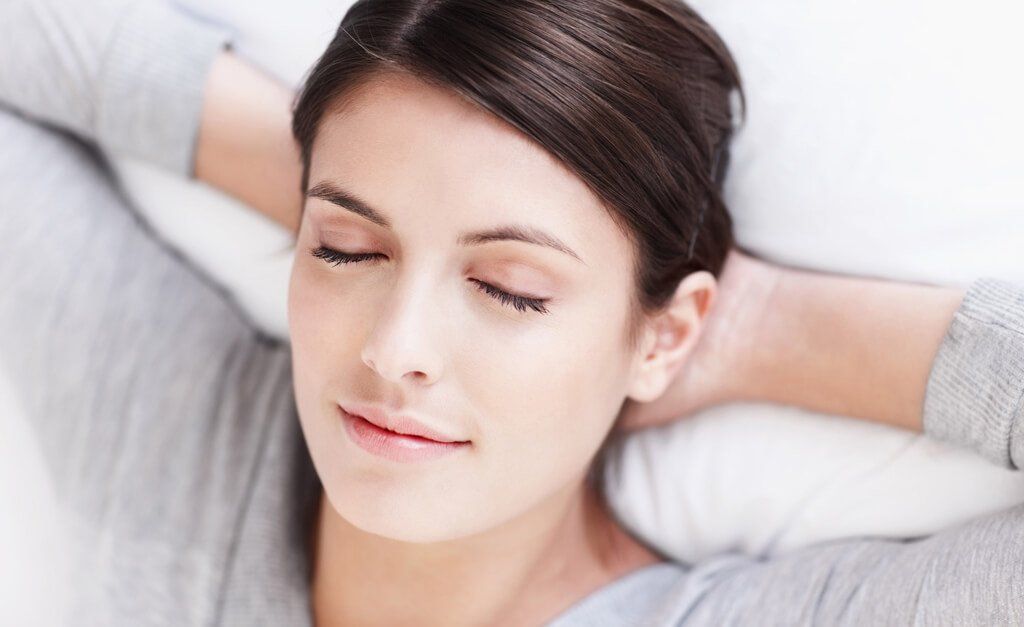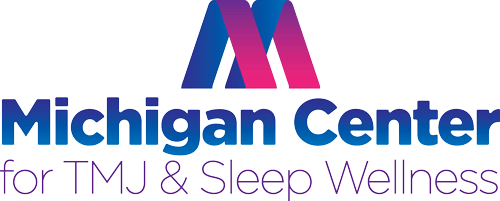Sleep Apnea Treatment
Because of the many dangers associated with sleep apnea, it’s crucial that you get successful sleep apnea
treatment that you can stick with. The good news is that there are many sleep apnea treatment options, so everyone can find the right treatment for them. Unfortunately, it might take you a couple tries to get the right one. At the Michigan Center for TMJ & Sleep Wellness, our Detroit sleep dentist works with sleep physicians and surgeons to perform comprehensive evaluations early on and reduce your trial-and-error period.
For help finding the best treatment for your sleep apnea, please call (248) 480-0085
or email us
for an appointment at the Michigan Center for TMJ & Sleep Wellness.
Self-Treatment for Sleep Apnea
"The Oral Appliance, for me was a wonderful alternative treatment to the CPAP. If you are CPAP non-compliant? It could truly save your life.
Thank you Dr. Haddad and Michelle! I am so glad I took the time to come to Troy."
- Teresa Adams
Lose Weight
Change Sleep Position
If you sleep on your back, gravity pulls your airway closed more than if you’re sleeping on your side. Learning to sleep on your side can help reduce your snoring and sleep apnea. For some people, this is an easy change, but if you’re having difficulty, try sewing a pocking on the back of your pajamas and putting a tennis ball in it. That should be uncomfortable enough to keep you from rolling onto your back in the middle of the night. (If that doesn’t work, try a softball — that’ll keep you from sleeping on your back!)
There are also commercial sleep positioners that some people have good luck with.
Identify Allergens
Allergens often play a big role in sleep apnea, and might be contributing to yours, especially if you notice that your apnea tends to worsen at certain times of year. Allergens can cause nasal congestion and they can also trigger swelling in the airway that makes it even narrower.
Environmental allergens can often be removed either by changing cleaning habits or installing an air filter.
You should also consider food allergens. If you notice you have bad snoring or apnea only occasionally, use a food and drink diary to try to link your bad episodes with potential causes, then get checked out. It only takes a mild allergy to cause enough swelling to be problematic.
Consider Changing Some Habits
Some lifestyle choices can make a big difference on your sleep apnea. Two common ones are smoking and alcohol consumption. Smoking irritates the airway, causing swelling that will narrow your airway, resulting in more breathing problems. Because smoking also makes it harder for your lungs to get oxygen out of the air and affects your body’s ability to circulate oxygen, smoking and sleep apnea are a bad combination. Consider quitting.
Alcohol contributes to the relaxation of your airway. This can make your apnea worse. If you want to continue drinking alcohol, don’t consume it too close to bedtime—no less than 4 hours before.
CPAP Sleep Apnea Treatment
Continuous positive airway pressure (CPAP)
is the most successful sleep apnea treatment, so it’s usually the one your doctor will recommend first. The only problem is that people don’t use it often enough or for long enough each night to get good results.
CPAP is very effective and can treat all types of sleep apnea, so it’s important for people to work with their doctor to give CPAP a fair shot before declaring that it just doesn’t work for them. Changing pressures and masks can often make all the difference in a person’s ability to use CPAP.
Oral Appliances
Oral appliances
for sleep apnea are used to reposition the lower jaw so that it provides better support for the airways. They can work as well as CPAP for many people, and many people find them much more comfortable and convenient. Some oral appliances can even cure your sleep apnea.
Oral appliances don’t work for people with central sleep apnea or both types. They can also cause damage to teeth and the temporomandibular joint if they are not properly fitted. It’s crucial to work with a skilled, trained, and experienced sleep dentist to make sure that the oral appliance is properly fitted.
Surgery
Surgery
is not usually recommended as a sleep apnea treatment until after other treatments have been tried. It is sometimes very effective at reducing the level of sleep apnea, but many people often see good results at first before returning to a high level of sleep apnea later. Often, surgery is a good adjunct to lifestyle changes or oral appliance therapy when a person doesn’t adapt to CPAP but has relatively severe sleep apnea.
To talk to a sleep dentist about what is the best sleep apnea treatment for you, please call (248) 480-0085
or email
the Michigan Center for TMJ & Sleep Wellness.



